Pancreatitis in Dogs
Update for all those who have asked and sent their best wishes and prayers for Angelina… (06.27.11 8a.m.)
Thank you to all of you who have asked about her. My husband Tim is on his way right now to pick her up at the Vet’s. Her symptoms are better but the Vet says it takes a week before the the levels in the blood go down, so too early to test. The Vet was in the office at about 2a.m. last night and sometime between then and 7a.m. when the first of his staff come in, Angelina had managed to get out of her cone and remove her own IV. (We warned him!) He said she didn’t like their food, the environment or the company… Or lack thereof~ So, it was probably time to come get her. 😉
We had to take the littlest of our four pups, Angelina, to the vet today. Turns out she has pancreatitis. Who knows why but perhaps because we are temporarily in a situation where we can’t control everything she/they eat.
Angelina is the little chocolate brown and white one. (Photo by UCLA Shutterbug)
Poor thing had to stay at the hospital because she needed an infusion of fluids. I felt so bad. She is used to having us around plus her doggie family and there was only one other dog at the hospital… and he was knocked out suffering from liver cancer. We left her with an IV, a cone around her neck and a pain patch in a cage all by herself. I wanted to cry and she was crying when we left. I tried to convince the vet to let me stay and watch over both of them… keeping him from having to run over in the middle of night to check on them, but no go because of liability issues.
She kept looking at me like… Mom are you leaving me? How could you? Are you ever coming back? And then I felt particularly bad because I hadn’t brought her a toy or a blanket that smelled like home; never thought she’d have to stay over. (The blanket was a clean freshly washed one,) It made me think of all the people who just abandon or dump their pets and makes me wonder even more than I always have… How could they?
The other 3 are all moping around and the Dad of the bunch keeps walking around like he is looking for her.
M~
What Is Pancreatitis?
Pancreatitis is simply an inflammation of the pancreas and is found in animals as well as humans.
So what’s a pancreas? It’s a little gland located near the stomach.
The pancreas has two main jobs. Its first job is to produce enzymes that help digest food. Its other job is to produce insulin, which regulates the blood sugar level.
And the cause of spontaneous pancreatitis in dogs is not well understood.
Types of Pancreatitis
Pancreatitis in dogs is usually divided into chronic and acute cases.
Symptoms of chronic pancreatitis are milder and are often mistaken for other illnesses.
While chronic pancreatitis is the milder form of the two, it’s a continuing inflammatory disease that’s often accompanied by slow, irreversible damage.
Acute pancreatitis is usually more severe, but when it’s over, there’s no remaining damage to organs.
So basically, pancreatitis can be acute and only occur once in a dog’s lifetime or it can become chronic and keep returning over and over again. It can be a rapidly life threatening illness or a mild attack of pain that resolves in a few hours or a day or so.
There’s another very severe form of this condition called necrotizing pancreatitis, in which the damage is so severe that portions of the pancreas are actually destroyed. Some authors refer to this as hemorrhagic pancreatitis.
This form of pancreatitis can be fatal and requires early intervention and aggressive treatment.
Causes of Pancreatitis in Dogs
In a large number of cases, the cause of pancreatitis remains unclear. Like with colitis, we really don’t know what causes it.
However, there are certain things that we know are associated with the disease.
Genetics. Many dogs are just born with it or if they have parents or grandparents that suffered with it they can inherit the propensity if not the disease itself.
There was a period where vets, who were trained through a training system that was affected by large donations from the commercial pet food industry, use to think and tell people who fed their pets human food, which is actually real food, was causing or at least sparking outbreaks of pancreatitis. But just like with pre-packaged food for humans and commercial baby food, we are realizing that we have been had. Big Pharma has controlled the medical field for humans for years and works on the same concept and formula for babies and commercial pet foods.
Cooking for your pets or feeding them a raw diet is now being taught as the healthiest diets. Back to the way grandma great-grandma fed her pets, kids and family is finally coming back into mode.
Dogs with diets high in fat, and dogs who have recently gotten into the trash or have been fed ‘greasy’ table scraps, seem to have a higher incidence of the disease. Ham, bacon, meat fat from our plates that we won’t or shouldn’t eat, processed hot dogs, ice cream, and greasy junk foods can cause an out break of pancreatitis. In fact, a single high fat meal can cause pancreatitis in a dog whose normal diet is moderate or low in fat.
That’s why there’s a rash of pancreatitis cases at vet clinics around Thanksgiving, Christmas and Easter every year. People just can’t resist sharing their ‘high fat’ leftovers with the family dog.
Some other factors contributing to the development of pancreatitis in dogs include:
- Obesity
- Trauma
- Liver disease
- Lack of exercise
- Certain medications
- Cushing’s disease
- Chronic kidney disease
- Recent abdominal surgery
- Blood clotting disorders
- Long-term use of corticosteroids
- High calcium levels in the blood
- High triglyceride and/or cholesterol levels in the blood
But for some dogs who are genetically pre-disposed to pancreatitis it can be none of the above.
Signs and Symptoms of Pancreatitis In Dogs
The most common symptoms of pancreatitis are:
- fever
- lack of appetite
- depression
- vomiting
- signs of abdominal pain
Other pancreatitis symptoms include:
- Diarrhea
- Yellow, greasy stool
- Dehydration
- sunken eyes
- dry mouth
- dry skin
- Lethargy
- Depression
- Weakness
- Irritability
- Rapid heart rate
- Rapid breathing
- Difficulty breathing
- Redness of the gums
- Signs of shock
Making a Diagnosis
Pancreatitis in dogs mimics several other conditions, making diagnosis difficult. Some of these most common “look alike” conditions are:
- Acute gastroenteritis
- Colitis
- Inflammatory bowel disease
- Intestinal obstruction
While there is no definitive test for pancreatitis, your veterinarian will try to make a diagnosis through information obtained from:
- Medical history (especially what your dog eats)
- Physical exam
- Laboratory tests
- Radiographs (X-rays)
- Abdominal ultrasound
- CAT scan
- Biopsy (occasionally)
Treatment For Pancreatitis In Dogs
The treatment your veterinarian selects will depend on the severity and duration of the illness. Dogs with a mild case of chronic pancreatitis may be treated at home, while those with a severe case of acute pancreatitis will require hospitalization and intensive care.
Resting the pancreas and gastrointestinal system is the most important key to your dog’s recovery.
That means no food or water by mouth for at least 24 hours to 48 hours.
The second major part of the treatment is the administration of large amounts of intravenous fluids.
Most dogs with pancreatitis are dehydrated from recurrent vomiting and diarrhea.
Other treatment measures include drugs to control vomiting, pain medications, and sometimes antibiotics to control or prevent bacterial infection.
Once the patient seems to feel better, he’s allowed to drink a bit of water. If he doesn’t vomit in the next 12 to 24 hours, he can graduate to solid food. He’ll probably be given small meals of a bland, easily digestible, low-fat food.
Over the course of a week or more, the amount of food can be gradually increased. Most dogs can go home once they’re able to eat and drink again.
Some dogs, if there was damage to the pancreas, may need supplemental treatment such as enzymes or insulin indefinitely.
Complications of Pancreatitis In Dogs
Dogs with severe pancreatitis can recover, but may also develop fatal complications, including:
- Shock
- Abnormal bleeding and clotting
- Heart arrhythmias
- Liver or kidney damage
- Abdominal inflammation and fluid accumulation
- Sepsis (internal infection from bacteria and toxins)
- Breathing difficulties
How Can I Keep It From Happening Again?
Pancreatitis can be a very unpredictable disease. In most cases, if the attack was mild and the dog only had one episode, chances of full recovery are good. Simply avoiding high fat foods may be all that’s needed to prevent another attack and/or complications.
Most vets generally prescribe a low-fat, high-fiber diet for pancreatitis in dogs, to help speed recovery and to prevent future episodes. (Homemade chicken and rice is a great choice!)
Depending on your dog’s situation, the diet recommendations may require a change for life or he may be able to gradually return to his former food, if it’s low enough in fat and high enough in quality.
Although most dogs can eat an occasional high-fat meal without a problem, once a dog develops pancreatitis, a high-fat meal will often cause another episode.
And make sure he can’t get into the garbage!
Some vets will try to steer you toward special commercial food for dogs with pancreatitis. If you feed your pet commercially prepared food, it is probably healthier than what you are feeding now and if you feed your pets a mixture of pet food and real food, you might try this type right after the incident and see if they will eat it. But the best food you can feed your dog is homemade chicken and rice, veggies, barley and a variety of non-fatty meats, plus a high quality probiotic and a natural vitamin daily. Natural chicken and duck type jerky strips and homemade biscuits are the best treats.
Sadly, veterinarians like MD’s know very little about nutrition. Vet and Med schools only spend about 10-hours out of their entire training process on the subject. Some, however, are beginning to educate themselves on this and other subjects, and once they do they all become proponents of feeding your pet real food, raw or homemade (non-greasy, non-junk) foods. The idea that real food is human food and not good is proof of the great selling job big business and marketing firms have done and the myth they have sold the public as well as many veterinarians and vet schools. Just look at what animals eat in the wild. Americans are starting back on the road to common sense on this matter as well as on many others.
Holistic, natural or alternative vets are always the best choice. They generally combine western veterinary medicine with nutritional therapy, acupuncture, chiropractic and other other holistic practices in order to treat the whole dog and the whole disease, including its root cause.
We have found that when our little Chiweenie (Chihuahua-Dachshund mix) has a flare-up from pancreatitis that a double dose of StemPets: For Dogs (and cats) helps her get back to her normal self better than anything we have found, prescription or natural, and giving it to her daily has kept her from having many flare-ups or kept them mild.
Who’s At Risk?
As with most diseases or conditions, certain dog breeds are more susceptible to pancreatitis than others. Miniature Schnauzers have a genetic susceptibility to the disease.
Other dogs that seem to be more predisposed to this condition are Yorkshire and Silky Terriers, Dachshunds, Miniature Poodles, and Cocker Spaniels.
The disease occurs usually in middle aged to older dogs, and overweight dogs are at a higher risk. It seems to affect females a little more frequently than males. Dogs with diabetes are also more at risk than others.
But it can strike any breed in any physical condition and at any age.
June 26, 2011 - Posted by justonemorepet | Animal or Pet Related Stories, Animal Related Education, animals, Chiweenie, Dogs, Holistic Pet Health, If Animlas Could Talk..., Just One More Pet, Man's Best Friend, Pet Health, Pet Nutrition, Pets, responsible pet ownership | Homemade pet food, Pancreatitis in Dogs, real food for pets, sick puppies, StemPet
25 Comments »
Leave a comment Cancel reply
Save a Life…Adopt Just One More…Pet!
Everyday we read or hear another story about pets and other animals being abandoned in record numbers while at the same time we regularly hear about crazy new rules and laws being passed limiting the amount of pets that people may have, even down to one or two… or worse yet, none.
Nobody is promoting hoarding pets or animals, but at a time when there are more pets and animals of all types being abandoned or being taken to shelters already bursting at the seams, there is nothing crazier than legislating away the ability of willing adoptive families to take in just one more pet!!
Our goal is to raise awareness and help find homes for all pets and animals that need one by helping to match them with loving families and positive situations. Our goal is also to help fight the trend of unfavorable legislation and rules in an attempt to stop unnecessary Euthenization!!
“All over the world, major universities are researching the therapeutic value of pets in our society and the number of hospitals, nursing homes, prisons and mental institutions which are employing full-time pet therapists and animals is increasing daily.” ~ Betty White, American Actress, Animal Activist, and Author of Pet Love
‘Until One Has Loved an Animal, Part of Their Soul Remains Unawakened’
So if you have the room in your home and the love in your heart… Adopt Just One More Pet or consider becoming a Foster parent for pets… Also check out: Little Critter: Just One More Pet
Inside of a Dog: What Dogs See, Smell, and Know(Kindle)


Photos By: Marion Algier – The UCLA Shutterbug
There is always room for Just One More Pet. So if you have room in your home and room in your heart… Adopt Just One More! If you live in an area that promotes unreasonable limitations on pets… fight the good fight and help change the rules and legislation…
Save the Life of Just One More…Animal!

Recent and Seasonal Shots
As I have been fighting Cancer… A battle I am gratefully winning, my furkids have not left my side. They have been a large part of my recovery!! Ask Marion
Photos by the UCLA Shutterbug are protected by copyright, Please email at JustOneMorePet@gmail.com or find us on twitter @JustOneMorePet for permission to duplicate for commerical purposes or to purchase photos.
See Creative Pet Halloween Costumes
If you can adopt or foster just one more pet, you could be saving a life, while adding joy to your own! Our shelters are over-flowing… Please join the fight to make them all ‘NO-Kill’ facilities.
Help Make a Difference

Protect Your Pet From Tarter and Gum Disease
Plaque Attack Triple Care Dental Spray Amazon.com Widgets- Adopt Just One More Pet All Animals All Pets animal abuse animal advocacy animal advocates animal cruelty animals ASPCA Bears be part of the solution Birds California cancer canines Cats cats and dogs Chihuahuas China Chiweenies Christmas cute dog Doggies dogs dogs and cats Dr. Becker elephants Fido fish for the love of a pet German Shepherd Halloween holidays holidays with pets horses HSUS Humane Society Humane Society of the United States JOMP Just One More Pet JustOneMorePet kittens kitties livestock Love man's best friend military dogs monkeys New York Pet Abuse Pet Adoption Pet costumes Pet Food pet fun Pet Health Pet Parents Pets pet safety pets and holidays Pets Are Family Pet Therapy Puppies puppy mills pups rabbits Rainbow Bridge reptiles responsible pet ownership responsible pet parents service dogs Stop Animal Cruelty Texas There Is Always Room For One More Pet we are their voice
 JustOneMorePet
JustOneMorePet- In Memory of Rocky – Until We Meet Again on Rainbow Bridge
- In Memory of Rocky – Until We Meet Again on Rainbow Bridge
- Panda Accused of Faking Pregnancy To Get Better Food, Air Conditioning
- Dachshund Family Photo | Picture Furrfect
- They Were Dead Puppy Parts Instead of Dead Baby
- Bob’s Full House
- Keep Your Pets Safe on the 4th of July
- JOMP Salutes Doggie Dads Both Two and Four Legged
- Smartest Dog In the World, Chaser – 60 Minutes With Anderson Cooper
- Quebec bill changes animals from "property" to sentient beings and includes jail time for cruelty
Find Pet Friendly Hotels
Recent Comments
JustOneMorePet
Tweets by JustOneMorePetFlickr Photos
Meta
Great Book for Children and Pet Lovers… And a Perfect Holiday Gift
One More PetEmily loves animals so much that she can’t resist bringing them home. When a local farmer feels under the weather, she is only too eager to “feed the lambs, milk the cows and brush the rams.” The farmer is so grateful for Emily’s help that he gives her a giant egg... Can you guess what happens after that? The rhythmic verse begs to be read aloud, and the lively pictures will delight children as they watch Emily’s collection of pets get bigger and bigger.
~~ 2000+ Dog Books And All Things Dog ~~
Dogwise, All Things Dog! Monthly Feature: BEHAVIOR PROBLEMS IN DOGSBuy Now: A Must Have For Every Pet Owner
-
Archives
- August 2015
- July 2015
- June 2015
- May 2015
- April 2015
- March 2015
- February 2015
- January 2015
- December 2014
- August 2014
- July 2014
- June 2014
- May 2014
- April 2014
- March 2014
- February 2014
- January 2014
- December 2013
- November 2013
- October 2013
- September 2013
- August 2013
- July 2013
- June 2013
- May 2013
- April 2013
- March 2013
- February 2013
- January 2013
- December 2012
- November 2012
- October 2012
- September 2012
- August 2012
- July 2012
- June 2012
- May 2012
- April 2012
- March 2012
- February 2012
- January 2012
- December 2011
- November 2011
- October 2011
- September 2011
- August 2011
- July 2011
- June 2011
- May 2011
- April 2011
- March 2011
- February 2011
- January 2011
- December 2010
- November 2010
- October 2010
- September 2010
- August 2010
- July 2010
- June 2010
- May 2010
- April 2010
- March 2010
- February 2010
- January 2010
- December 2009
- November 2009
- October 2009
- September 2009
- August 2009
- July 2009
- June 2009
- May 2009
- April 2009
- March 2009
- February 2009
- January 2009
- December 2008
- November 2008
- October 2008
- September 2008
- August 2008
If You Were Stranded On An Island…
A recent national survey revealed just how much Americans love their companion animals. When respondents were asked whether they’d like to spend life stranded on a deserted island with either their spouse or their pet, over 60% said they would prefer their dog or cat for companionship!







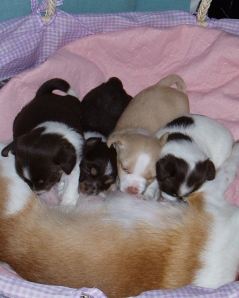
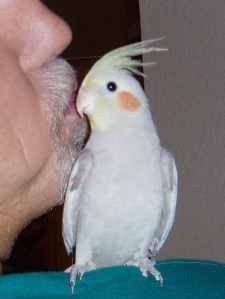

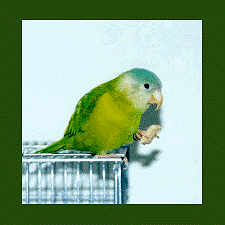
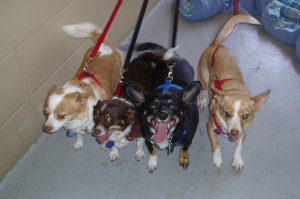


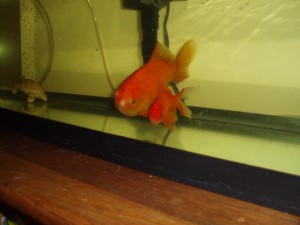
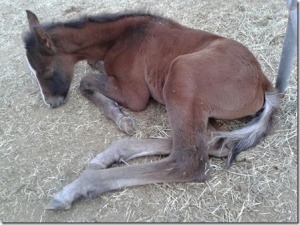

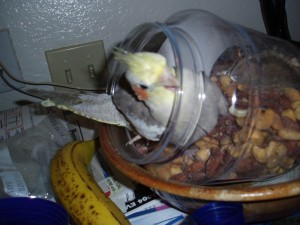

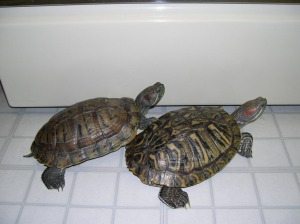
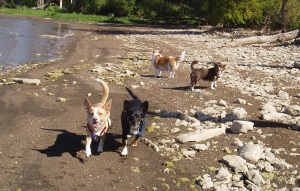






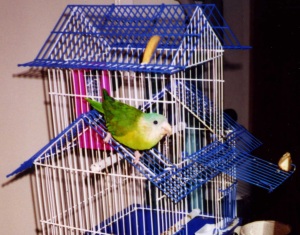



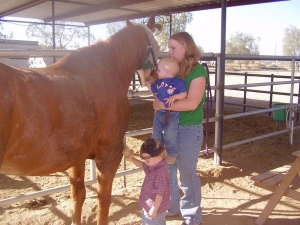
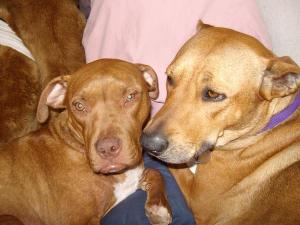

























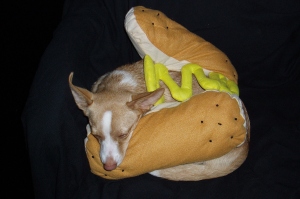












[…] Pancreatitis in Dogs […]
Pingback by Good Diet and Advice for Dogs with Pancreatitis « JustOneMorePet | August 18, 2011 |
[…] Pancreatitis in Dogs […]
Pingback by Ridiculous Pet Weight Loss Products Continue to Flood the Market « JustOneMorePet | February 24, 2012 |
[…] Pancreatitis in Dogs « JustOneMorePet : Jun 26, 2011 · Pancreatitis in Dogs. Update for all those ... vets will try to steer you toward special commercial food for dogs with pancreatitis. ... Pet Emergenc… on “Holidays ... […]
Pingback by Steer clear of Holiday Pancreatitis in Dogs | Free 101 Articles | April 18, 2012 |
[…] and it's really the best I've seen so far. I think you will get some much needed help from it. Pancreatitis in Dogs JustOneMorePet __________________ ZADA AZRAEL RAZAEL JILLI ANN […]
Pingback by Peanut has Pancreatitis - YorkieTalk.com Forums - Yorkshire Terrier Community | June 3, 2012 |
[…] just posted this site on your other post I thought would help you. Pancreatitis in Dogs JustOneMorePet __________________ ZADA AZRAEL RAZAEL JILLI ANN […]
Pingback by Food for Pancreatitis - YorkieTalk.com Forums - Yorkshire Terrier Community | June 3, 2012 |
[…] Pancreatitis in Dogs […]
Pingback by When Raw Food is NOT the Right Food for Your Pet « JustOneMorePet | June 6, 2012 |
[…] Pancreatitis in Dogs […]
Pingback by How the Pet Food Industry Has Helped Create "Carnivore Metabolic Syndrome" « JustOneMorePet | July 13, 2012 |
[…] Pancreatitis in Dogs […]
Pingback by How the Pet Food Industry Has Helped Create "Carnivore Metabolic Syndrome" | askmarion | July 13, 2012 |
[…] Pancreatitis in Dogs […]
Pingback by Cancer and Your Pet: Two Things to Avoid « JustOneMorePet | August 1, 2012 |
[…] Pancreatitis in Dogs […]
Pingback by A Raw Food KIBBLE? « JustOneMorePet | September 7, 2012 |
[…] Pancreatitis in Dogs […]
Pingback by Pet Jerky Death Toll Update: 360 dogs, 1 Cat According to FDA « JustOneMorePet | September 22, 2012 |
[…] Pancreatitis in Dogs […]
Pingback by Did You Know There are Two Kinds of Raw Pet Food on the Market? « JustOneMorePet | October 25, 2012 |
[…] little Chiweenie suffers from pancreatitis and whenever she has a flare-up, a double dose of StemPets: For Dogs Single helps her get back to […]
Pingback by Marion’s Pet Sitting Services – Best in Temecula CA « JustOneMorePet | January 24, 2013 |
[…] Pancreatitis in Dogs […]
Pingback by Toxic Chicken Jerky Pet Treats Pulled from Store Shelves! « JustOneMorePet | February 1, 2013 |
[…] Pancreatitis in Dogs […]
Pingback by Toxic Chicken Jerky Pet Treats Pulled from Store Shelves! | askmarion | February 2, 2013 |
[…] Pancreatitis in Dogs […]
Pingback by Pet Food Red Flags You Want to Avoid « JustOneMorePet | February 17, 2013 |
[…] Pancreatitis in Dogs […]
Pingback by A Natural Herb That Fights Cancer, or Chemotherapy for Your Sick Pet… Which Would You Choose? « JustOneMorePet | March 22, 2013 |
[…] Pancreatitis in Dogs […]
Pingback by A Natural Herb That Fights Cancer, or Chemotherapy for Your Sick Pet… Which Would You Choose? | askmarion | March 26, 2013 |
[…] Pancreatitis in Dogs […]
Pingback by Ditch This Pet Food Now – Can Be Deadly to Your Pets « JustOneMorePet | April 8, 2013 |
[…] fats, which are healthy for humans, but too much fat of any kind increases the risk of pancreatitis in dogs. Pancreatitis can be fatal to your canine best friend, so it’s best to stay from nuts and […]
Pingback by Can Dogs Eat Nuts? « JustOneMorePet | July 15, 2013 |
[…] Pancreatitis in Dogs […]
Pingback by Don’t Let This Organ Ruin Your Pet’s Life « JustOneMorePet | October 2, 2013 |
[…] Pancreatitis in Dogs […]
Pingback by How to keep your dog safe during Thanksgiving holidays « JustOneMorePet | November 17, 2013 |
[…] *Macadamia Nuts (this includes things like cookies and pies) and go easy on nuts in general (nuts in general are not great for dogs, but walnuts, macadamia nuts, and pecans are particularly harmful and add the additional possibilities of health problems caused by fungus and mold. Peanuts and peanut butter are not on the no-no list but could also cause problems because of mold issues). Nuts are rich in monounsaturated fats, which are healthy for humans, but too much fat of any kind increases the risk of pancreatitis in dogs. […]
Pingback by The “Not So Safe” or No-No Pet Food List « JustOneMorePet | November 24, 2013 |
[…] Walnuts (nuts in general are not great for dogs, but walnuts, macadamia nuts, and pecans are particularly harmful and add the additional possibilities of health problems caused by fungus and mold. Peanuts and peanut butter are not on the no-no list but could also cause problems, for humans as well, because of mold issues). Nuts are rich in monounsaturated fats, which are healthy for humans, but too much fat of any kind increases the risk of pancreatitis in dogs. […]
Pingback by Keeping Pets Safe for Thanksgiving: The “Not So Safe” or No-No Pet Food List | askmarion | November 24, 2013 |
[…] Pancreatitis in Dogs […]
Pingback by Natural Pancreatitis Remedies for Dogs « JustOneMorePet | May 28, 2015 |